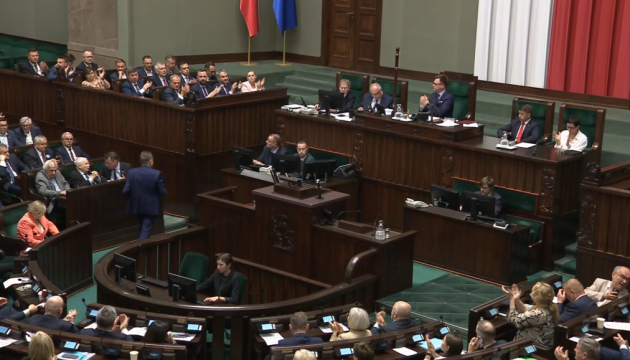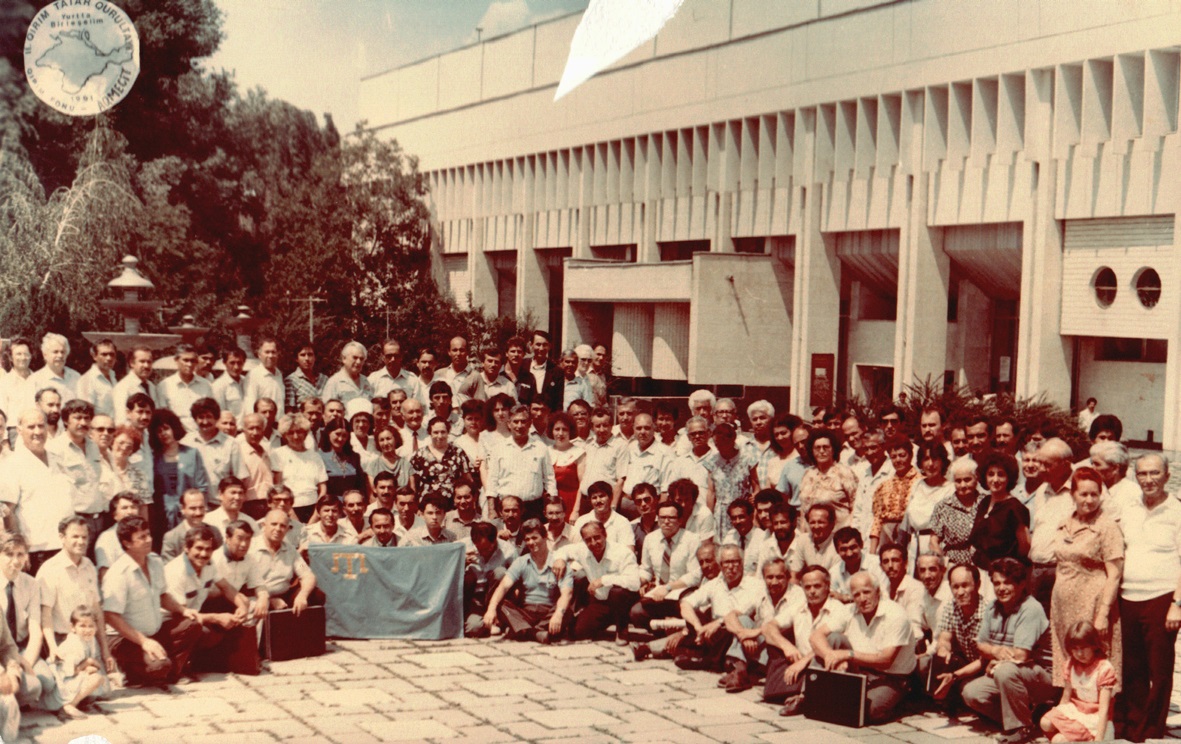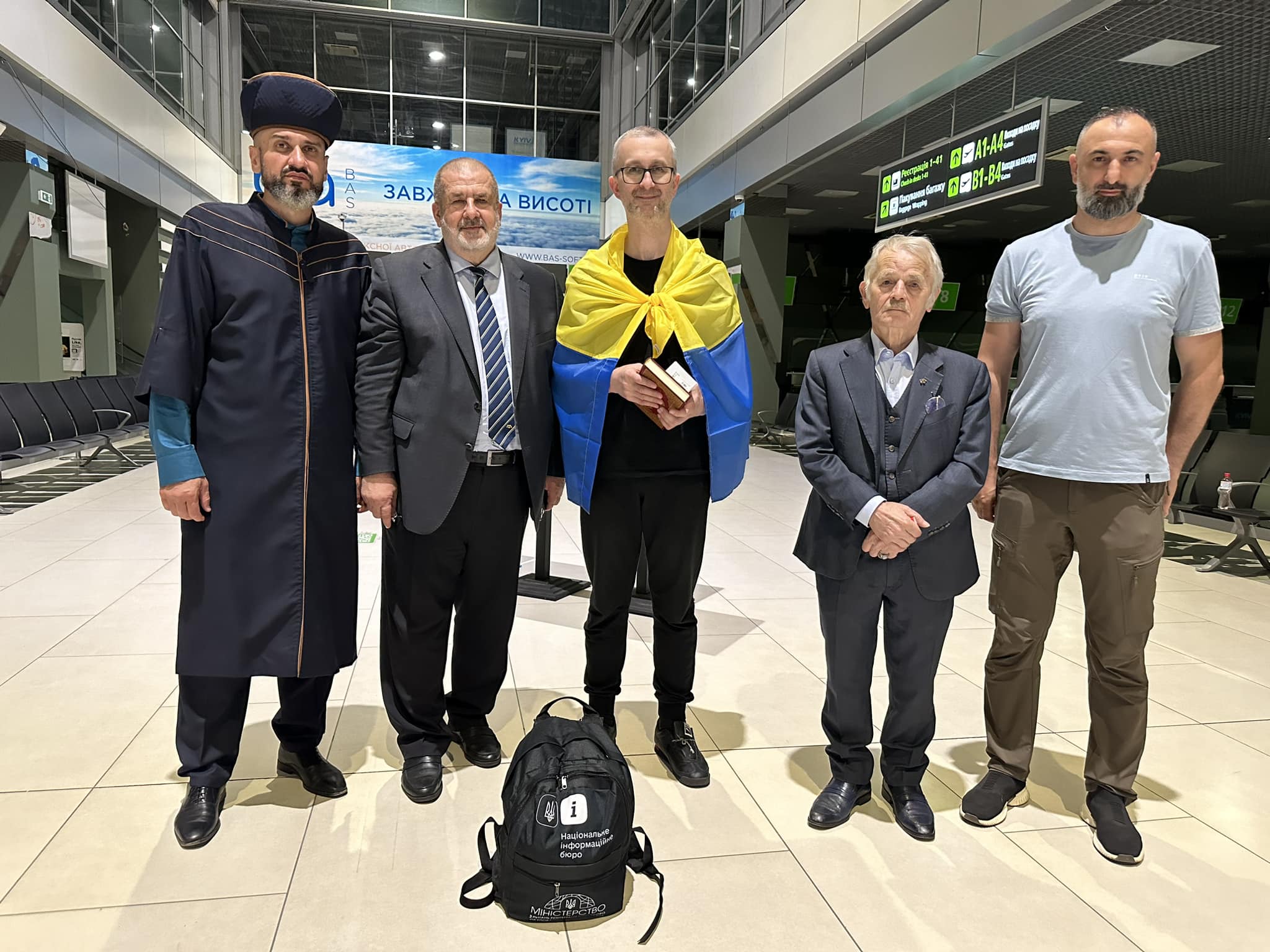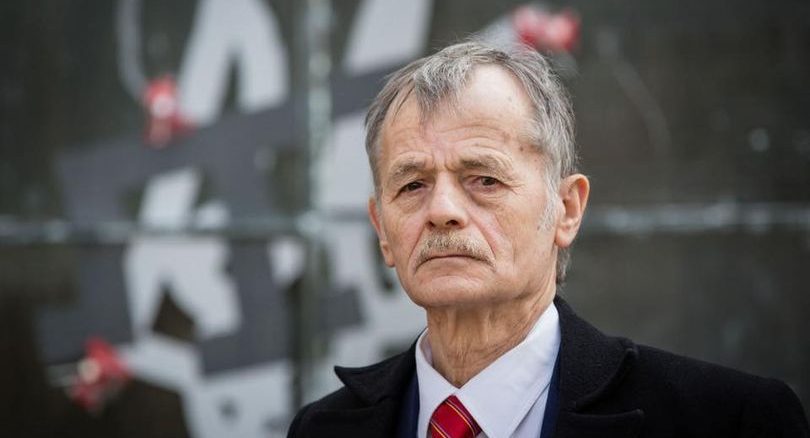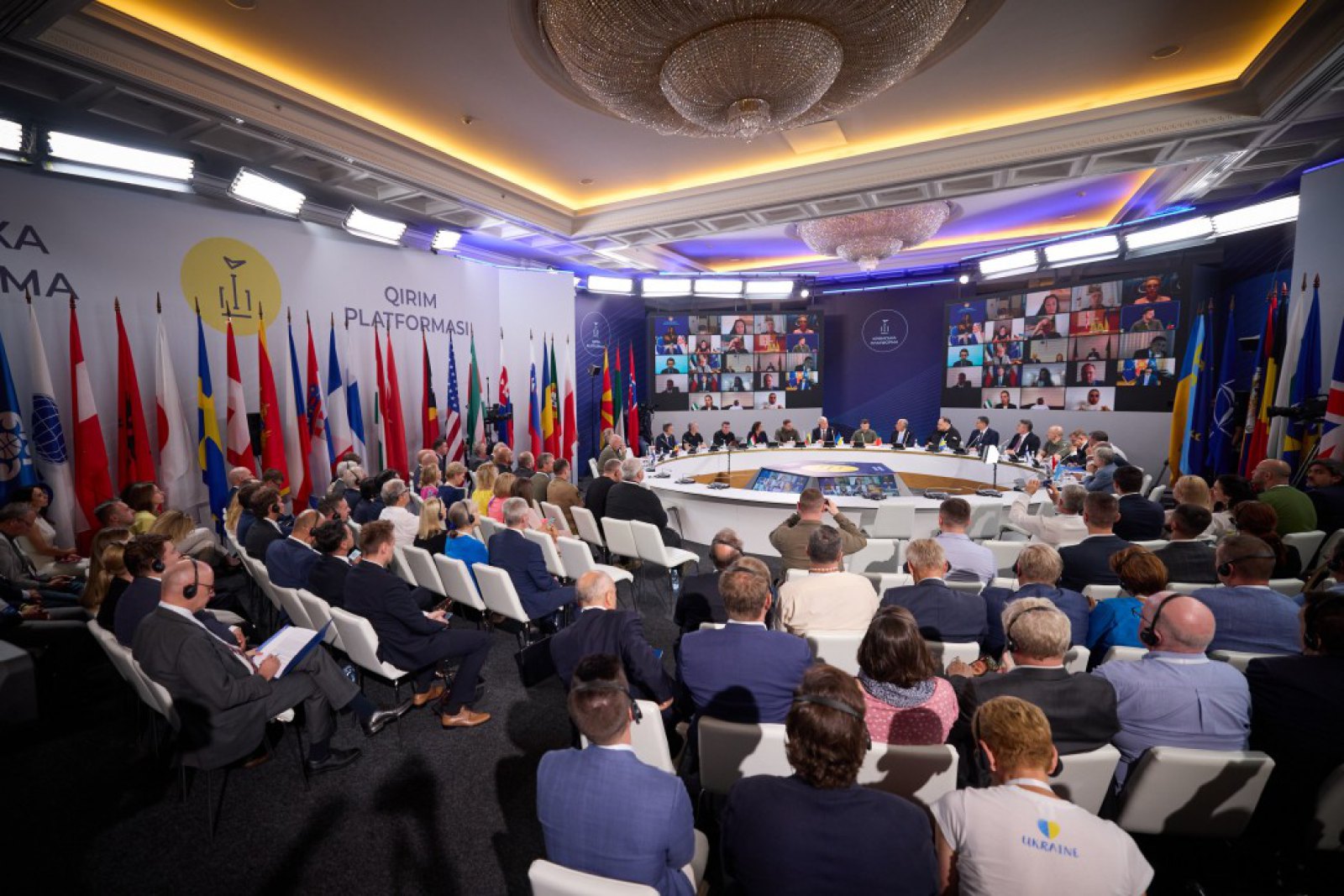Minority Rights Group International (MRG) Paid Special Attention to Situation With Crimean Tatars in Ukraine
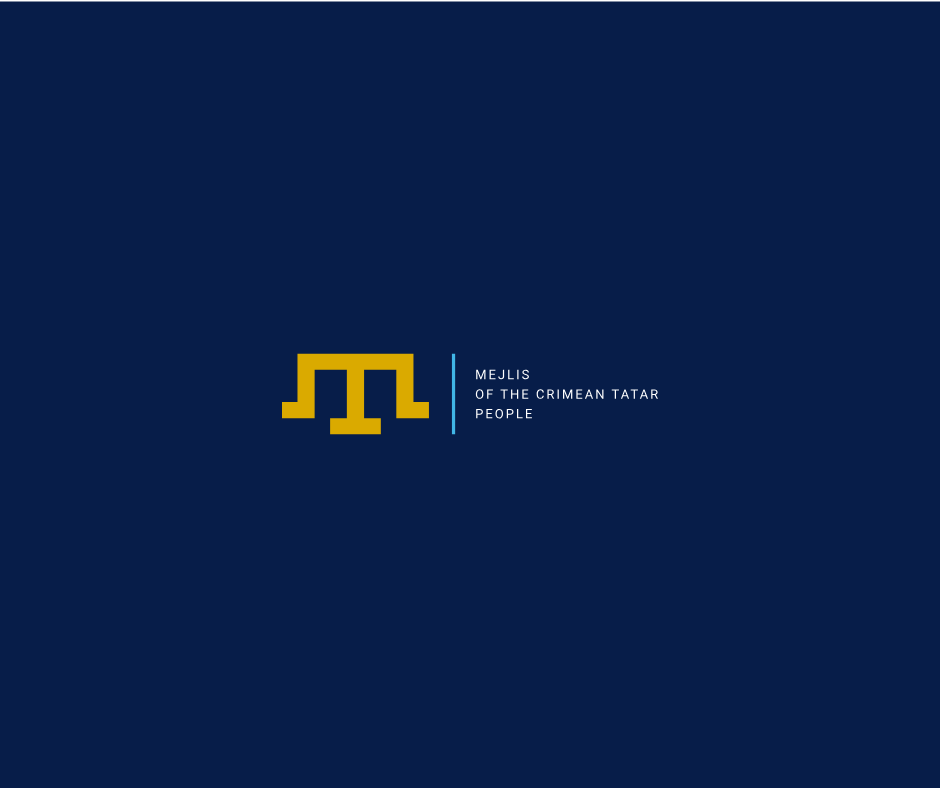
Minority Rights Group International (MRG) that monitors protection of the rights of the minorities and indigenous peoples in Europe and Central Asia has prepared the alternative report to the UN Committee on the Elimination of Racial Discrimination in Ukraine.
Since 1996 the European office of this organization is located in Budapest. The report is titled “Shadow Report to Ukraine’s 19th to 21th Periodic Report Under the ICERD – June 2011”. The report includes information about the Crimean Tatar people in Ukraine.
Along with many issues, related to the political and legal situation with Crimean Tatars the report addresses the difficult situation of the Crimean Tatar newspaper “Qyrym” that could be closed due to the lack of financing.
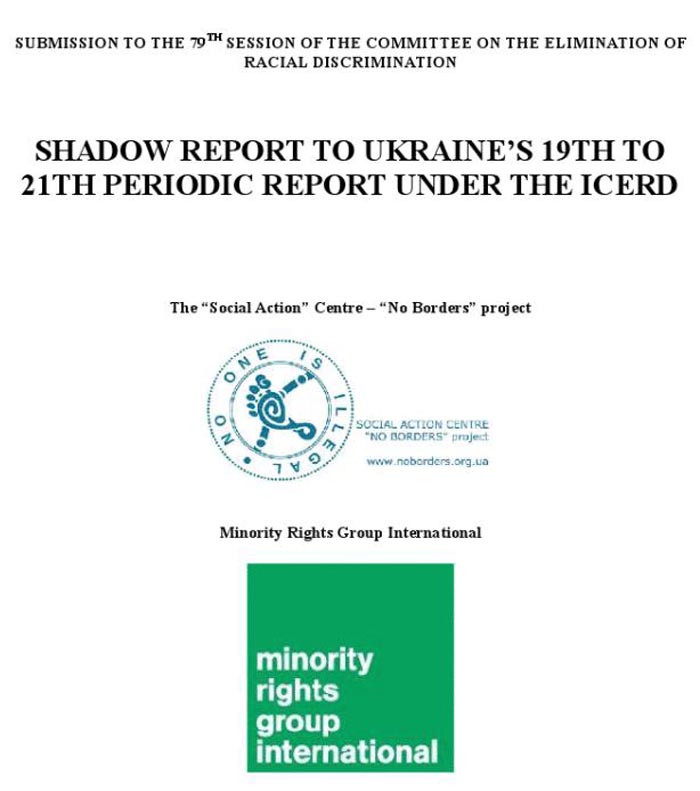
III. Minorities rights
Throughout 2010 Ukrainian authorities have taken no measures to modernize legislation related to national minorities. While the President tried to “optimize” the structure of the executive bodies, he liquidated the State committee on nationalities and religion, an institution coordinating policy of protecting national minorities, administrating resources aimed to implement state-wide programs of returning and settling deported Crimean Tatars, as well as people with other nationalities who returned to Ukraine. But even earlier these programs were not always financed according to their needs. In the field of inter-ethnical relations legal norms on ensuring national minorities’ rights against ethnic and racial discrimination remain declarative. The same is valid for settling problems of integration of migrants, as well as inter-ethnic co-operation. Ukraine also failed so far to develop a comprehensive, systematic and long-term program of Roma integration. Ukraine also needs to teach tolerance and international dialogue at schools and universities.
III. 1. Article 2. Review of policies – Removal of racial discrimination from legislation and policy
Adequate legislation is ensured not only due to the absence of racial discrimination in the legislation, but also when all its provisions are clear. In Ukraine there is no strategy and ethno-national policy accepted by the authorities, although several drafts were sent to the Parliament. Correspondingly, the absence of terminology, agreement on the definition of „national minority” and criteria for distinction from „ethnic group” and „ethnic minority”, “indigenous people” and even immigrants makes it impossible to elaborate mechanism to fight race discrimination and support minorities, although in the Constitution (Articles 10, 11, 92, 119, 138) these terms are used. There is no clear antidiscrimination law. Therefore, the review of existing provisions and their supplement should be on the agenda and be considered as a starting point for the further steps of combating discrimination.
The provisions of “Agreement on the issues regarding restoration of rights of the deported persons, national minorities and peoples”, signed by the CIS States in Bishkek, 1992, includes deported Crimean Tatars. The document has been prolonged for 10 years more in 2003 during the meeting of CIS States leaders in Sent-Petersburg, and ratified by the Act of Ukrainian Parliament (№1501-VI -18.02.04). From the moment of its signature, none of the CIS States participate in the process of restoration of the deported Crimean Tatars rights. Today, Ukraine is the only State that faces the problems concerning the repatriation of the Crimean Tatars, as best it can, which is not enough though.
At the same time, Ukraine does not spur the implementation of documents adopted by the Council of Europe and OSCE in respect of the Crimean Tatars and other minorities. Thus, the PACE Committee on Migration, Refugees and Demography penal session (Apr.5, 2000, Strasburg (France) covered the Crimean Tatar issues. Almost every provision of the special Recommendation №1455 (2000) “Repatriation and Integration of the Crimean Tatars” on Ukraine remains disembodied. More than that, once hardly adopted by the Parliament of Ukraine (June 2004) Decree – ‘Restoration of the rights of persons deported due to national sign’- had been rejected by the President of Ukraine, consequently, never came into force.
The Presidential decree №39/2006 20.10.06 aims to improve present political and legal foundations for the regulation of the ethno-political processes in Ukraine; adaptation of national legislation to the international legal framework in the sphere of the inter-ethnical relations and minority rights defence.
Nevertheless, a number of issues remain unsolved:
1. The right of the Crimean Tatars as indigenous people to their ethnical identity, preservation and development of the ethno-cultural heritage. It stipulates the right to the use of the Crimean language in all spheres of life, development of national culture, traditional religion.
2. The right to free national self-identity. The religion plays an important role in the life of the Crimean Tatars since it is an inevitable part of their cultural development. Inter-confessional relations characterized by high politicization might become another factor for the worsening of the socialpolitical situation. In addition to this, the influence of the so-called Islamic factor, Islamofobia and Islam extremism determine to some extent problematic state of affairs in the Crimea.
It is necessary to adopt the law on the rights restoration of the formely deported persons on the basis of their national identity, which would allow the Crimean Tatars return to the homeland and prevent potential conflict in the interethnic and inter-confessional sphere.
As a case study of the inter-ethnic conflict the following should be mentioned:
As a result of a fire near the village of Mirnoe (Zhigulina Rosha tract), in Crimea, the recently completed roof of a mosque burned and collapsed on the night of December 24 and early hours of December 25, 2010. The walls and partitions near the roof of the mosque, which was still in the process of being constructed, were subjected to heat-damage and deformation.
According to preliminary estimates, direct losses from the fire amount to UAH 100,000 (USD 12,558).
Testimony from local residents as well as nature of the fire make it possible to conclude, with a high degree of certainty, that the building was intentionally set on fire, in what appears to be a criminal act of arson, by a yet unidentified person or group of people.
In particular, the events of the past weekend resonated with the Muslim Ummah of Crimea, where the incident elicited indignation.
The Spiritual Board of Muslims of Crimea is treating these events as purposeful acts, intended to destabilize interreligious harmony in the Crimea. Consequently, the Muslim Board is calling on law enforcement authorities to adopt urgent measures aimed at identifying those responsible for the act of arson and bringing them to justice.
The Spiritual Board of Muslims of Crimea, on behalf of Crimean Muslims, is particularly troubled by the lack of accountability that law enforcement authorities have demonstrated in investigating and solving previous acts of vandalism. These include an attempt to burn down the Seyt-Settar Mosque as well as pogroms in a cemetery near the village of Uvarovka (Nizhnegorsk raion) and pogroms in Chistenkoe (Simferopol raion) in February and April of 2008. Such acts of provocation represent direct attacks on, and pose an immediate threat to, human life.
Recognition
As per December 2007 data, 264 thousand Crimean Tatars live in Crimea, and they constitute 13% of the whole population on the peninsula.
The Ukrainian Government treats the Crimean Tatars as a “national minority’. However, having being historically the residents of the Crimean Peninsula before 1944, the Crimean Tatars claim to be an indigenous people of Crimea, and strives for recognition of its heritage on the Crimean land. The ‘indigenous people’ term used to be applied by the Soviet Union towards the Crimean Tatars.
Despite all, the Crimean Tatars are considered to be a national minority, and special elective national institution of the Crimean Tatars – Kurultay – still remains unrecognized by the Ukrainian authorities.
The Constitution of Ukraine, Article 11, stresses: “The State promotes …development of the ethnic, cultural, linguistic and religious identity of all indigenous peoples and national minorities of Ukraine”. However, the 54 Article does not mention the political development and does not ensure the political representation of minorities, and indigenous peoples.
The Crimean Tatars consistently insist on realization of their self-determination right in the form of nationalterritorial autonomy in Crimea within integral Ukrainian state.
The Crimean Tatar people require acknowledgement of their status as an indigenous people of Crimea.
III.2. Article 5. Equality before the law
According to the Mejlis of Crimean Tatar People there has not been a single law aiming at rehabilitation both the collective rights of entire nation, which repatriates after half a century long exile, and the individual rights of the Crimean Tatars. The absence of the legislation to resolve multiple conflicts related to the Crimean Tatars forms negative ethnic stereotypes within society.
(c) The right to vote and participate in public affairs
It is necessary to make clear in the legislation the political and legal status of the Crimean Tatar people and all rights which should be guaranteed by the United Nations Declaration on the rights of indigenous peoples (2007), which Ukraine still did not sign.
The Crimean Tatars still remain unrepresented in governmental system of Autonomous Republic of Crimea (ARC), including the Verkhovna Rada of Crimea despite for one Member of Parliament of Ukraine. Taking into account all above mentioned, the Government of Ukraine together with the Crimean Parliament should ensure appropriate representation of Crimean Tatars by adopting special mechanisms, as it is indicated in the Article 4, II Part of Frame Convention of European Council on Protection of National Minorities, that was ratified by Ukraine in 1998. It is necessary to adopt special measures to promote Crimean Tatar’s political involvement in Government and Parliament of Crimea – the land where the Crimean Tatar entity is a significant part of Crimean population.
(e) Economic, social and cultural rights
Among other issues that lay in economic, social and cultural realm that require both adoption of new legal regulative norms and fair application of already existing norms we should mention the following:
– Allotment to repatriates of land plots for construction of housing and for economic activities,
including agricultural production,
– Provision of affordable housing for the most socially vulnerable repatriates,
– Setting a system of fair compensation (restitution) for unduly expropriated property and real estate, including the land,
– Revival of entire state system of school and pre-school education on the Crimean Tatar language,
– Securing of equal conditions for religions in terms of relations between state and believers
– Reinstallation of historical toponymy renamed after the deportation
III.3. The right to own property and The right to housing
According to the Article 47 of the Constitution of Ukraine “Everyone has the right to housing.” And “Citizens in need of social protection are provided with housing by the State and bodies of local self-government”.
But, only 20% of Crimean Tatars received the allotted land plots in the regions of
depressive development. The Compensation system of lost property by virtue of deportation is necessary to implement equal access for housing facilities. Even more, the Article 33 of the Constitution of Ukraine declares:
“Everyone who is legally present on the territory of Ukraine is guaranteed freedom of movement, free choice of place of residence, and the right to freely leave the territory of Ukraine, with the exception of restrictions established by law.” The Ukrainian legislation restricts the allocation of agricultural land by giving the right to get the land plot only to former workers of collective farms (“kolkhoz”). De-facto, this regulation leaves behind the Crimean Tatars, who had been deported by the “kolkhoz” times.
Besides, recently the Crimean Tatars, claiming the land, tend to be bitterly suppressed by the Crimean Police. Therefore, the sides should find adequate resolution of land issue in Crimea via allocation of land plots, or compensation of lost lands, and to bring to a standstill the harassment of the protesters.
Linguistic issues
According to the Article 2(b), each State Party undertakes not to support racial discrimination, while under discrimination the distinction as to race, sex, language or religion is understood. Representatives of linguistic and national minorities in Ukraine are discriminated on a linguistic basis in key areas of public life. Deregulated issue of the use of languages affects the system of education. Children that speak minority languages (Russian, Romanian, Hungarian, Jewish and others), in practice, are deprived of the rights that enjoy state language (Ukrainian) speakers. The number of schools that provide education to children in their native language is cut down: for the last 16 years in Ukraine more than 16 thousand schools where pupils were taught in the languages of national minorities were closed (that comprises more than 60% of the total amount of secondary schools in 1992). Moreover, the number of students who are studying in these languages has decreased approximately by 7 times, from 3 millions to 480,000. (139)
Presently, pupils are taught in Crimean Tatar, Moldavian, Romanian, Hungarian, Polish, Russian languaes in Ukraine, comprising the network of 1500 of schools with 0,5 million pupils. February 25, 2010 The European Parliament adopted a resolution on the situation in Ukraine. In paragraph 5 of this resolution the European Parliament pointed that Ukraine should ensure the rights of minorities to get education in their native language.
Thus, the legislation of Ukraine and ratified international agreements guarantee the right to pass final examinations in secondary education and entrance examinations to higher education institutions in minority languages and prevent from any discrimination, restrictions of privilege.
III.4. Article 7. Adoption of immediate and effective measures, particularly in the fields of teaching and education.
A variety of forms of racial segregation of Roma in education have been identified by the ERRC and its partners in Ukraine140. They can be described as: (a) separate classes for Roma in a separate school building; (b) geographically segregated schools in predominantly Romani neighbourhoods; (c) schools where Roma predominate or where they are only students; (d) classes for children with mental disabilities where Roma are overrepresented; and (e) schools at risk of becoming segregated when non-Romani parents decide to take their children to other schools allegedly due to the health problems of Romani children who live in very poor conditions. Most Romani children either graduate illiterate or leave school at an early stage. In addition, most of the predominantly Roma schools are in poor physical condition with no cafeteria or dining hall, no sport facilities, with no indoor toilets or running water, with minimal furniture in various stages of disrepair and lacking the facilities necessary to educate students adequately, such as computers and laboratories. Even the most basic equipment is inadequate or altogether lacking.
Case study: the newspaper in the Crimean language
On 7th of July 1989 the first issue of the newspaper in the Crimean language took place. Since 1991 the finance of this newspaper from the centre stopped and since that time was supported from the republican budget, but constantly there were financial problems. The situation did not change when the newspaper became supported from the federal budget (since 2004), although it allowed to issue it twice a week. It is known that the Crimean people had two daily newspapers in the period from 1906 till the October revolution; today all national autonomies on the post-Soviet Union territory have their daily newspapers. In comparison, there are only two newspapers in the Crimean language: one of them is issued once in two weeks, the other one weekly. The newspaper “Krim” supports the strengthening of the language environment of the four thousand Crimean families. It has a lot of social functions which might be compared to the national theatre, museum or library. The existence of the newspaper is also essential since the Crimean language is included in the UNESCO list of threatened languages. From January 2011 the newspaper is in a very difficult situation and might be closed due to the lack of finance.
139 http://r-u.org.ua/en/official/190-news.html
140 http://www.errc.org
